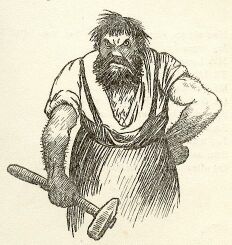See also
- Fabricius (crater), a lunar impact crater in the northeast part of the walled plain Janssen
- Fabrizio (disambiguation)
- Fabritius (disambiguation)
Fabricius (Latin : smith, German : Schmied, Schmidt) is a surname. Notable people with the surname include:
David Fabricius was a German pastor who made two major discoveries in the early days of telescopic astronomy, jointly with his eldest son, Johannes Fabricius (1587–1615).
Curtius may refer to:
Johannes Müller, Johann Müller or Hans Müller is the name of:
Johann Goldsmid, better known by his Latinized name Johann(es) Fabricius, eldest son of David Fabricius (1564–1617), was a Frisian/German astronomer and a modern era discoverer of sunspots in 1611, preceded by Thomas Harriot and followed by Galileo Galilei.
The German word Müller means "miller". It is the most common family surname in Germany, Switzerland, and the French départements of Bas-Rhin and Moselle and is the fifth most common surname in Austria. Other forms are Miller and Möller. Of the various family coats of arms that exist, many incorporate milling iconography, such as windmills or watermill wheels.
Schmidt is a common German occupational surname derived from the German word "Schmied" meaning "blacksmith" and/or "metalworker". This surname is the German equivalent of "Smith" in the English-speaking world.
Hartmann is a German surname. It is less frequently used as a male given name. The name originates from the Germanic word, "hart", which translates in English to "hardy", "hard", or "tough" and "Mann", a suffix meaning "man", "person", or "husband". The name Hartman, distinguished by ending with a single "n", is generally the result of the anglicisation of names that occurred with the emigration of persons from German-speaking to anglophone nations in the 18th, 19th and early 20th century. Below is a list of notable individuals and fictional characters with the surname or given name of Hartmann.
Schenk is a Jewish (Ashkenazic) and German occupational surname derived from schenken referring to the medieval profession of cup-bearer or wine server. At one time, only Jews were allowed to sell alcohol in the Russian empire, which is why Shenk (Russian) and its later surname variants are very common.

St. Thomas School, Leipzig is a co-educational and public boarding school in Leipzig, Saxony, Germany. It was founded by the Augustinians in 1212 and is one of the oldest schools in the world.
Meyer is an originally German, Dutch and Jewish surname. With its numerous variants, it is a common German surname. Its original meaning in Middle High German is from mei(g)er, "manager ", derived from Latin maior domus, i.e. "headman of a household", later on also meaning "tenant" or "(free) farmer". It is therefore a rough equivalent of the English Steward, which has also been turned into surnames such as Stuart.

Faber is the Latin word for "smith". Like a few other Latin occupational names, it was adopted as a surname in the Low Countries and Germany. It is also common in England, perhaps due to Norman French influence. Notable people with the surname include:
Fabritius is a North European surname and Latin given name. Bearers of the name include:
Lange is a surname derived from the German word lang "long".
Gotthelf is a given name and a surname. Notable people with the name include:
The Fridtjof Nansen Prize for Outstanding Research is a Norwegian research award. It is conferred by the Nansen Trust and its associated trusts, and it was established in 1896 after the return of the Fram Expedition.
Johan Fabricius (1899–1981) was a Dutch writer, journalist, and adventurer.